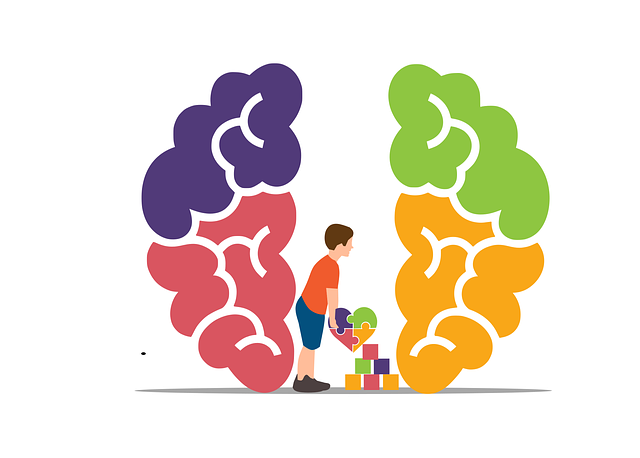Boulder Adolescent and Teen Therapy (BAT) employs comprehensive risk management planning as a cornerstone of its mental health practice, prioritizing client and therapist safety. This involves advanced strategies beyond regulatory compliance, such as crisis intervention training for staff, structured sessions for stress management and self-esteem improvement, and ongoing trauma-informed care training. BAT's holistic approach integrates these measures into sessions, conducts tailored risk assessments, and focuses on proactive burnout prevention. Through continuous monitoring and adaptation to best practices, BAT creates a secure environment empowering clients to overcome emotional challenges and enhances the therapeutic experience.
Mental health professionals are constantly navigating complex situations, making risk management planning crucial for safe and effective practice. This article explores a structured approach to managing risks within clinical settings, using Boulder Adolescent and Teen Therapy (BATT) as a case study. We delve into identifying specific risks, developing robust assessment frameworks, implementing mitigation strategies, and the importance of continuous monitoring for enhanced patient safety at BATT.
- Understanding Risk Management in Mental Health Practice
- Identifying Potential Risks and Hazards at Boulder Adolescent and Teen Therapy
- Developing a Comprehensive Risk Assessment Framework
- Implementing Effective Risk Mitigation Strategies
- Continuous Monitoring, Review, and Improvement for Enhanced Safety
Understanding Risk Management in Mental Health Practice

Risk management planning is an integral part of mental health practice, designed to ensure the safety and well-being of both clients and therapists. For organizations like Boulder Adolescent and Teen Therapy, this involves a comprehensive approach to identifying, assessing, and mitigating potential risks within the therapeutic environment. By implementing robust risk management strategies, mental health professionals can foster a secure space for clients to explore their emotional challenges.
Effective risk management in mental health practice goes beyond simply adhering to regulatory standards. It includes proactive measures such as training staff on crisis intervention techniques, establishing clear protocols for client assessment and monitoring, and providing resources for self-care and emotional well-being promotion. For instance, Mental Wellness Journaling Exercises can be a valuable tool to help clients process their thoughts and emotions, while guidance on Self-Esteem Improvement techniques empowers them to build resilience and cope with challenges. Such initiatives contribute to a holistic approach, ultimately enhancing the therapeutic experience at Boulder Adolescent and Teen Therapy.
Identifying Potential Risks and Hazards at Boulder Adolescent and Teen Therapy

At Boulder Adolescent and Teen Therapy, identifying potential risks and hazards is a proactive step in ensuring the well-being of both clients and therapists. This process involves a comprehensive evaluation of various factors unique to adolescent therapy settings. One significant risk area is the intense emotional vulnerability of teens, who often grapple with issues like anxiety, depression, and self-esteem challenges. These conditions can be exacerbated by external stressors such as academic pressures, family dynamics, or social media influences.
The Stress Management Workshops Organization highlights the importance of risk management planning for mental health professionals. By recognizing these vulnerabilities and stressors, Boulder Adolescent and Teen Therapy employs strategies to create a safe therapeutic environment. This includes structured sessions that focus on stress management techniques, self-esteem improvement activities, and crisis intervention protocols. Additionally, regular staff training on trauma-informed care ensures therapists are equipped to handle sensitive situations effectively.
Developing a Comprehensive Risk Assessment Framework

At Boulder Adolescent and Teen Therapy, we understand that mental health professionals face a myriad of risks in their line of work, from potential patient disclosures to emotional exhaustion. Developing a comprehensive risk assessment framework is therefore an essential step in ensuring the safety and well-being of both therapists and their clients. This involves meticulously evaluating various aspects, including past traumatic experiences disclosed by patients, the nature of their mental health conditions, and any external factors that might contribute to risk.
A robust framework should incorporate strategies tailored to individual client needs, focusing on skills like coping mechanisms and resilience building. By integrating these measures into therapy sessions, professionals can proactively navigate potential risks, fostering a safe space for teens and adolescents navigating life’s challenges. This holistic approach, combined with regular community outreach program implementation, equips both therapists and their young clients with the tools necessary to thrive.
Implementing Effective Risk Mitigation Strategies

Mental health professionals, like those at Boulder Adolescent and Teen Therapy, constantly face complex situations requiring careful risk management. Implementing effective risk mitigation strategies is key to fostering a safe and supportive environment for both clients and practitioners. This involves not only identifying potential risks but also proactively developing strategies to minimize their impact.
Empathy building strategies play a crucial role in mitigating risks by enhancing understanding and connection between therapists and clients. Additionally, burnout prevention strategies for healthcare providers are essential, as mental health professionals must maintain resilience to effectively support their young clients. Regular risk assessments, coupled with adaptive planning, enable therapists to navigate challenging scenarios with confidence, ensuring the highest standards of care at Boulder Adolescent and Teen Therapy.
Continuous Monitoring, Review, and Improvement for Enhanced Safety

Effective risk management planning for mental health professionals involves an ongoing process of continuous monitoring, review, and improvement. At Boulder Adolescent and Teen Therapy, we emphasize this dynamic approach to ensure the safety and well-being of both clients and therapists. By regularly assessing risks and implementing appropriate strategies, we adapt to evolving challenges and best support mental wellness.
Adhering to Mind Over Matter Principles, our team fosters a culture of self-care routine development for better mental health. This proactive mindset encourages open dialogue about potential risks and facilitates timely interventions. Through regular reviews, we identify areas for enhancement and continually refine our practices, ensuring that our services remain top-tier and aligned with the latest research and best practices in the field.
Mental health professionals at Boulder Adolescent and Teen Therapy must prioritize risk management planning to ensure a safe and supportive environment. By understanding potential risks, conducting thorough assessments, implementing mitigation strategies, and continuously monitoring practices, therapists can create a robust safety framework. This proactive approach not only protects clients but also fosters trust and enhances the overall therapeutic experience, making Boulder Adolescent and Teen Therapy a model for comprehensive risk management in mental health practice.











